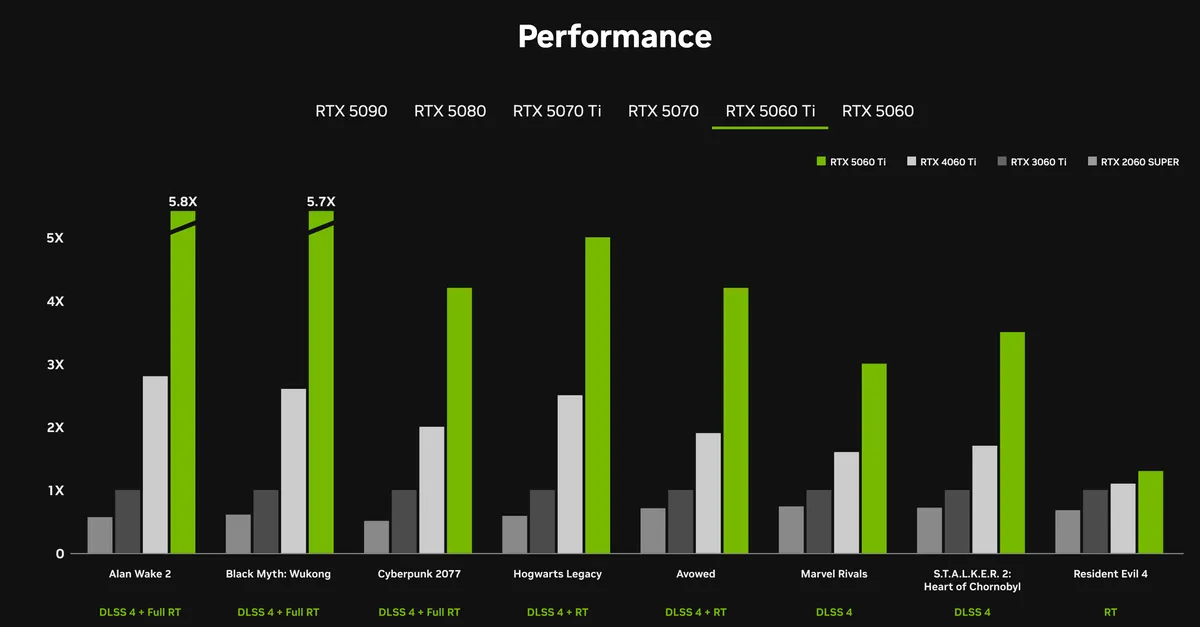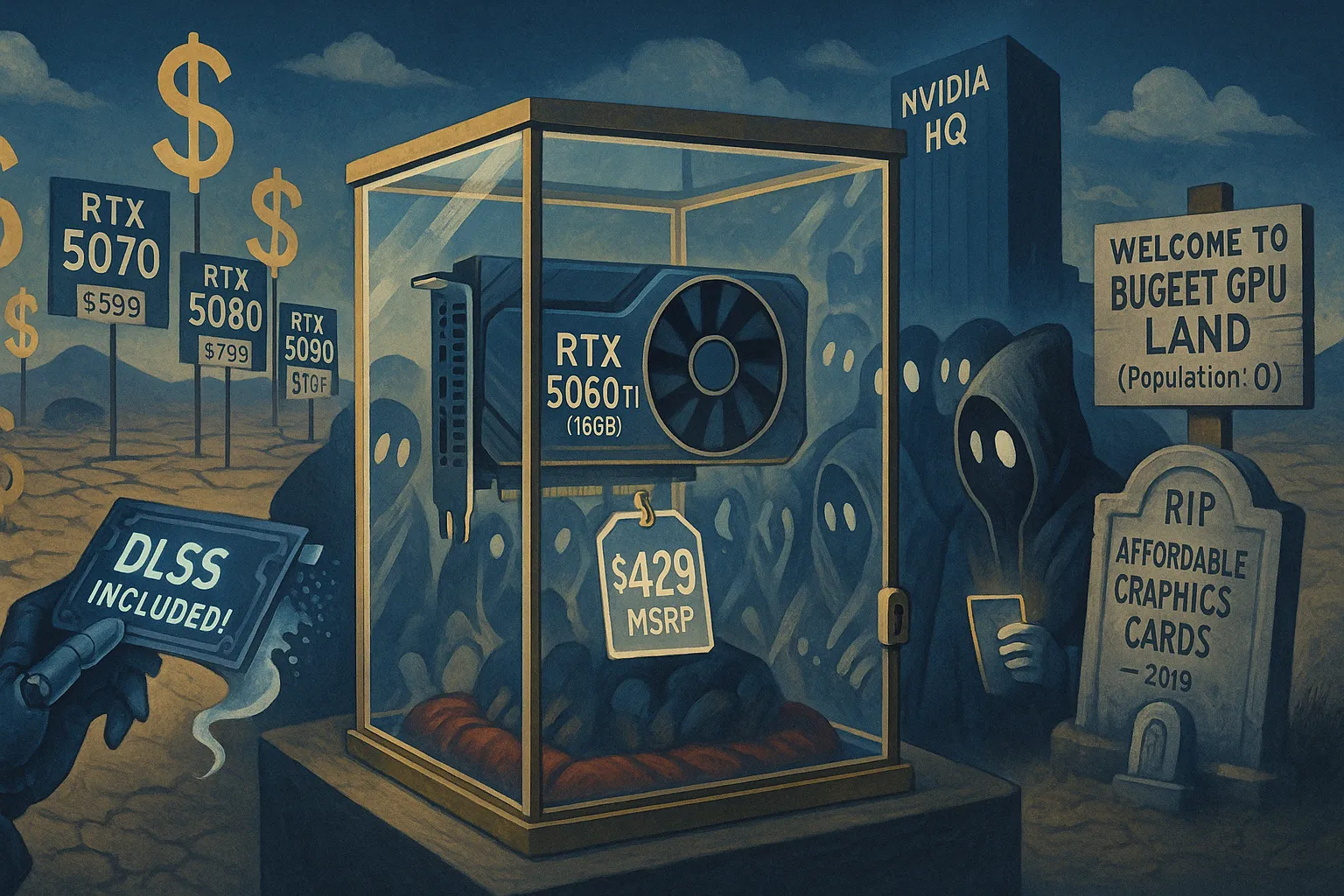The specs tell an interesting story. Nvidia boosted the core count from 4,352 to 4,608 shaders and bumped the clock speed to 2,572 MHz. But the real star is the new GDDR7 memory running at 28 Gbps – a 56% bandwidth increase over its predecessor.
Price-wise, Nvidia claims the 16GB model will retail for $429, while its 8GB sibling asks for $379. That $50 premium for double the memory seems reasonable – almost suspiciously so, given current market conditions.
Performance gains hover around 15% compared to the RTX 4060 Ti. Not earth-shattering, but enough to make last year's model feel a bit long in the tooth. The card handles 1080p gaming with ease and manages 1440p admirably, though 4K remains a stretch.
Speaking of running hot, the card's TGP climbs 20 watts higher than its predecessor, now sitting at 180W. Your electric bill won't notice, but your power supply might need to work a bit harder.

Nvidia's marketing department has been busy too. They're pushing "neural rendering" features like DLSS upscaling and Multi Frame Generation. These AI-powered tricks can boost framerates significantly – assuming developers implement them and you don't mind the occasional visual artifact.
Now for the elephant in the room: availability. Recent GPU launches have shown us that MSRPs are more like suggestions than actual prices. While Nvidia sets the 16GB model at $429, finding one at that price might be harder than finding a quiet mechanical keyboard.
Consider the current market: RTX 5070s sell for $200 above MSRP, 5080s command a $500 premium, and the 5090 costs roughly the same as a used car. AMD's offerings fare no better, with their RX 9070 selling $300 above list price. Even Intel's modest Arc cards demand $100 premiums.
The situation becomes clearer when you look at Nvidia's revenue breakdown. Gaming GPUs account for just 9% of their $130 billion annual revenue, while data center products rake in 89%.
For context, the previous generation RTX 4060 Ti 16GB currently sells for around $700 – if you can find one. The 8GB model starts at $525, making those original MSRPs look like fond memories.
Why this matters:
- Nvidia's finally offering reasonable memory configurations at seemingly reasonable prices – but market realities suggest you'll need to win the retail lottery to score one at MSRP
- The gaming GPU market has effectively become a side business for Nvidia, with artificial scarcity driving prices into the stratosphere. Remember when "budget GPU" wasn't an oxymoron?
Read on, my dear:
- Nvidia: GeForce RTX 50 Series










